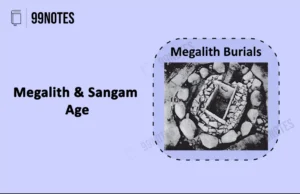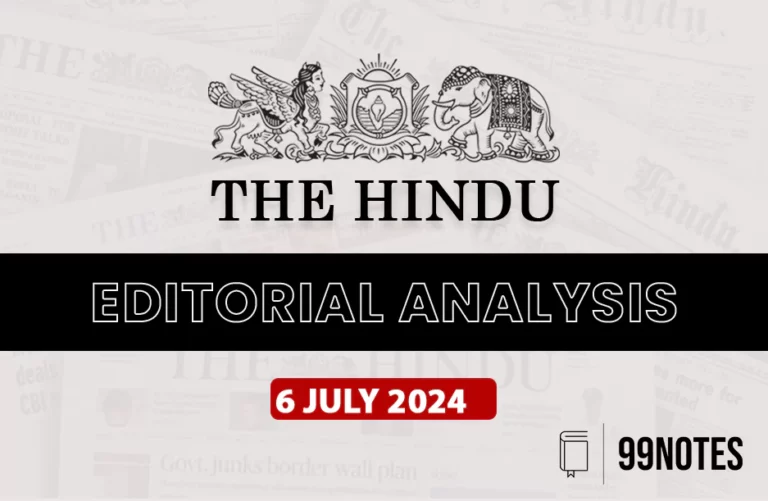28 February 2024 : The Hindu Editorial Notes PDF
The Hindu Editorial
28-February-2024
1. Stop the dithering and encourage green elections in India
| Topic: GS2 – Indian Polity UPSC relevance: Understanding eco-conscious electoral practices aligns with global environmental concerns, governance, and sustainable development goals. |
| Context |
|
Introduction:
- The Election Commission of India (ECI) raises concerns over environmental risks in elections due to non-biodegradable materials.
- The need for eco-friendly elections is highlighted, aligning with global environmental concerns.
Environmental Impact of Traditional Elections:
- Traditional election methods contribute significantly to carbon emissions through paper-based materials, energy-intensive rallies, and disposable items.
- In the 2016 US presidential elections, campaign flight emissions alone equaled the annual carbon footprint of 500 Americans.
- India’s massive elections with large-scale rallies amplify environmental impact.
Challenges and Solutions:
- Research from Estonia identifies transportation to polling booths as a primary carbon emission source during elections.
- Transitioning to digital voting systems could reduce the carbon footprint by up to 40%.
- Implementing eco-friendly elections faces technological, financial, and behavioral challenges.
- Challenges include robust infrastructure for digital voting, ensuring fair access to technology, financial constraints, and cultural resistance.
Successful Initiatives in Kerala, Sri Lanka, and Estonia:
- Kerala’s 2019 general election saw a ban on non-biodegradable materials, promoting eco-friendly alternatives like wall graffiti and paper posters.
- Goa’s 2022 Assembly elections featured eco-friendly booths using biodegradable materials crafted by local artisans.
- Sri Lanka’s SLPP party launched the world’s first carbon-sensitive election campaign, offsetting emissions by planting trees.
Blueprint for Green Transition:
- Political parties are urged to lead the transition by enacting legislation for eco-friendly practices.
- The Election Commission should incorporate green practices into the Model Code of Conduct.
- Recommendations include digital or door-to-door campaigning, incentivizing sustainable materials for polling booths, and promoting public transportation.
- ECI can advocate for digital voting, requiring training and capacity building for officials.
- Government support is crucial for educating voters and ensuring equitable access to digital technology.
- Civil society plays a catalyst role, and the media emphasizes the environmental impact of traditional methods.
Conclusion:
- Estonia’s success with digital voting sets an example for an eco- and electorate-friendly approach.
- Embracing eco-conscious electoral practices can position India as a global leader in environmentally responsible elections.
| PYQ: To enhance the quality of democracy in India the Election Commission of India has proposed electoral reforms in 2016. What are the suggested reforms and how far are they significant to make democracy successful? (250 words/15m) (UPSC CSE (M) GS-2 2017) |
| Practice Question: Discuss the significance of transitioning to eco-friendly electoral practices in India, considering environmental impact, challenges, and global examples (250 words/15 m) |
2. Everything in the garden of elections is not lovely
| Topic: GS2 – Indian Polity UPSC relevance: The news is important to understand judiciary’s role, challenges in electoral integrity, and grasp on constitutional principles. |
| Context |
|
Introduction:
- The Supreme Court of India emphasizes free and fair elections as a fundamental part of the Constitution’s basic structure.
- The Chandigarh Mayor’s election case, decided on February 20, 2024, gains significance in the context of preserving the democratic process.
Challenges in the Political Landscape:
- India faces a crucial upcoming general election amid heightened religiosity in the political discourse.
- Concerns about a potential shift towards theocracy prompt a closer examination of the electoral process.
Significance of Chandigarh Judgment:
- The Chandigarh case involves a Returning Officer favoring a BJP-affiliated candidate, raising political significance and court intervention.
- The Court emphasizes its duty, under Article 142, to ensure electoral democracy isn’t subverted by such actions.
Judicial Observations on System Degeneration:
- The Court’s observations reflect an understanding of the degeneration within the system and its potential consequences.
- Noteworthy is the courage of a Municipal Corporation officer to subvert the process and the defense by senior law officers.
Role of Judiciary in Electoral Integrity:
- Constitutional provisions, laws, and the Election Commission uphold the sanctity of the electoral system.
- Judiciary’s role in intervening to restore system integrity and punish subverters enhances public morale.
Public Response to Judicial Interventions:
- The public widely welcomes Supreme Court judgments on the electoral bonds scheme and Chandigarh’s mayoral elections.
- Judicial intervention is seen as essential to uphold democratic principles and counter the degeneration of institutions.
Challenges in Upcoming Elections:
- Upcoming Lok Sabha elections coincide with unprecedented religious fervor, raising concerns about potential religious influences.
- The secular Constitution, laws, and courts face the crucial test of protecting electoral system integrity.
Role of Religion in Elections:
- Political parties often overlook Section 123 of the Representation of People Act, which addresses corrupt practices, including the use of religion.
- Judicial interpretations highlight that appeals in the name of religion, by candidates or voters, are impermissible.
Apprehensions and the Chandigarh Episode:
- The Chandigarh episode, though seemingly isolated, sparks apprehensions about the future of India’s electoral democracy.
- The Supreme Court’s decisive intervention saves the electoral process, but concerns linger about potential future subversions.
Conclusion:
- After 75 years of India’s electoral democracy, attempts to subvert the electoral process raise concerns.
- The timely judiciary intervention is crucial in maintaining the integrity of the democratic system.
| Degeneration of Electoral Process in India |
Examples:
Reasons:
Way Forward:
Addressing the degeneration of the electoral process in India requires a multifaceted approach, combining legal reforms, technological interventions, and a cultural shift towards ethical and transparent political practices. |
| Practice Question: Discuss the challenges faced by the electoral process in India, citing examples of degeneration. Propose reforms for restoring transparency, ethical standards, and strengthening democratic values. (150 words/10 m) |
3. Scientific exploration, not superpower status, should drive India’s space programme
| Topic: GS2 – Governance – Government policies Critical for UPSC as it covers India’s Gaganyaan mission, political influence, democratic accountability, and ISRO’s scientific roadmap. |
| Context |
|
Gaganyaan Astronaut Finalists Announced:
- Pilot Shortlist: Air Force pilots Prasanth Balakrishnan Nair, Ajit Krishnan, Angad Pratap, and Shubhanshu Shukla are the final candidates for India’s Gaganyaan mission, revealed by PM Narendra Modi during a Kerala visit.
- Mission Background: Gaganyaan, ISRO’s human spaceflight mission, plans to send Indian astronauts to low-earth orbit using an indigenous rocket. Union Cabinet approved it in 2018 with a budget of ₹10,000 crore.
- ISRO’s Timeline: ISRO aims for two test flights of the human-rated Launch Vehicle Mark-3 in 2024 and 2025, followed by the crewed launch in 2025. The organization navigated delays due to COVID-19 and commercial commitments.
Political Influence and Space Policy:
- Political Influence Inevitable: Acknowledges the likelihood of political influence in a project of this magnitude but emphasizes the need for Gaganyaan to transcend purely political motivations.
- Space Policy Directive: Indian Space Policy 2023 mandates ISRO to conduct applied R&D for maintaining India’s edge in human spaceflight and develop a roadmap for sustained human presence in space.
- Democratic Accountability: Calls for future justifications of space missions to be open to public scrutiny and debate, fostering a culture of democratic space exploration.
Challenges and Future Roadmap:
- Challenges Faced: Challenges faced by ISRO, including pandemic-related delays and balancing commercial commitments.
- Moon Landing Directive: The article acknowledges PM Modi’s directive for ISRO to land an Indian on the moon by 2040, emphasizing the need for a transparent and justifiable roadmap.
Focus on Scientific Exploration:
- Shift in Focus: Encourages a shift from maintaining “India’s edge” for its own sake to a focus on creating scientific and societal value.
- Avoiding Geopolitical Posturing: Advises against aiming for ‘space superpower’ status and suggests prioritizing scientific exploration and expanding human horizons over geopolitical aspirations.
Conclusion:
- Democratic and Scientific Values: Urges a cultural shift towards democratic accountability, public engagement, and a focus on scientific exploration, avoiding unnecessary geopolitical competition.
- Future Identity: Calls for Gaganyaan to provide astronauts with an identity rooted in fundamental scientific and societal contributions rather than maintaining national superiority.
| Practice Question: Examine the importance of transparency and public scrutiny in India’s space exploration, focusing on the Gaganyaan mission and its implications for scientific advancements and national aspirations (250 words/15 m) |
For Enquiry

28 Feb 2024 : Daily Current Affairs

28 Feb 2024 : Indian Express Editorial Analysis

28 February 2024 : The Hindu Editorial Notes PDF

28 February 2024 : PIB Summary for UPSC

Megaliths: Ancient Stones & Their Mysteries (UPSC Exam Notes)

27 Feb 2024 : Daily Current Affairs Quiz

27 Feb 2024 : Daily Answer Writing

27 Feb 2024 : Daily Current Affairs

27 February 2024 : The Hindu Editorial Notes PDF

27 February 2024 : PIB Summary for UPSC
Daily Current Affairs 28 Feb 2024 : Daily Current Affairs Daily Current Affairs
28-February-2024- Top News of the Day
1. India Unveils Astronauts for Gaganyaan…
Indian Express 28 Feb 2024 : Indian Express Editorial Analysis Indian Express Editorial Analysis
28-February-2024
1. Our burdened children
Topic: GS2 – Social…
Feb 2024 The Hindu 28 February 2024 : The Hindu Editorial Notes PDF The Hindu Editorial
28-February-2024
1. Stop the dithering and encourage green elections in India
Topic:…
feb 2024 PIB 28 February 2024 : PIB Summary for UPSC PIB Summary for UPSC
28 February -2024
1. Central Electricity Authority to honour the nation’s frontline…
Ancient India Megaliths: Ancient Stones & Their Mysteries (UPSC Exam Notes) Megaliths
A megalith is a large stone used alone or in conjunction with other stones to build a prehistoric…
Daily Quiz 27 Feb 2024 : Daily Current Affairs Quiz 27 Feb 2024 : Daily Quiz…
mains answer writing 27 Feb 2024 : Daily Answer Writing Mains Answer Writing
27-February-2024
Q1)”Parliamentary committees serve as the engine room of…
Daily Current Affairs 27 Feb 2024 : Daily Current Affairs Daily Current Affairs
27-February-2024- Top News of the Day
1. Maharashtra Dilutes RTE Act, Sparks Debate…
Feb 2024 The Hindu 27 February 2024 : The Hindu Editorial Notes PDF The Hindu Editorial
27-February-2024
1. Drop the ‘garland model’ to let science in India blossom
Topic:…
feb 2024 PIB 27 February 2024 : PIB Summary for UPSC PIB Summary for UPSC
27 February -2024
1. International collaboration of physicists achieves first…


